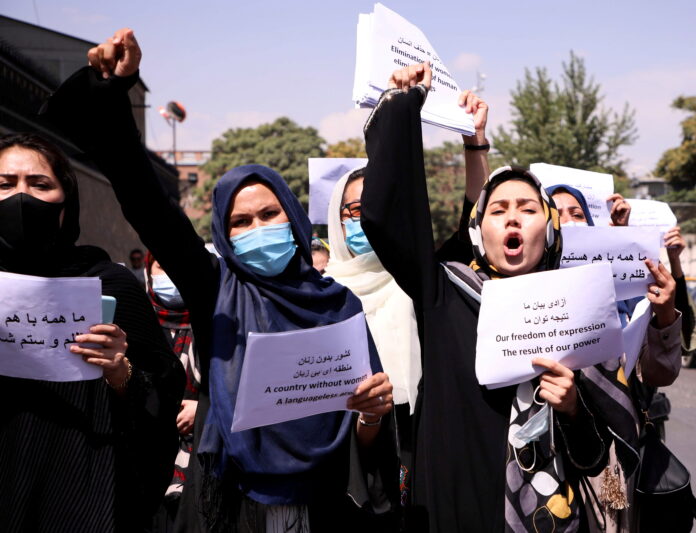
In the ancient land of Afghanistan, where beauty and grace once found refuge, a storm of change is sweeping across the lives of its women. As the Taliban tightens its grip on power, the vibrant colors of beauty salons are fading, taking with them a sense of freedom and a precious source of connection and solace for Afghan women.
For years, beauty salons had been a sanctuary where women could escape the confines of their daily lives. These establishments not only offered a chance to enhance their appearances, but also became a haven where joys and sorrows were shared openly. For Zarmina, a young mother and wife from Kandahar, visiting the salon was a rare moment of respite from societal restrictions. The space allowed her to cultivate friendships, discover her sense of independence, and briefly escape the shackles of her conservative citadel.
However, the past two years have witnessed a gradual erosion of women’s liberties, culminating in the recent closure orders from the Taliban. Thousands of jobs are now on the line, and the economic crisis has cast its long shadow on the hopes and dreams of these brave salon workers.
One might wonder, what lies behind the Taliban’s decision to shutter these seemingly harmless establishments? To some, beauty salons represent a defiance of traditional values and a threat to the rigid social order imposed by the extremist regime. In a land where women are already prohibited from classrooms, gyms, and parks, the closure of salons further restricts their access to spaces that once offered a glimmer of independence.
The stories of Madina and Somaya bear witness to the profound impact that beauty salons have on the lives of Afghan women. For Madina, the salon provided an opportunity to express herself creatively, to showcase her style to her adoring husband, and to share moments of bliss during her wedding preparation. Somaya, on the other hand, found healing and restored self-confidence at the salon after a tragic accident left her scarred and withdrawn.

Beyond the veneer of vanity, these women found a source of therapy and emotional sustenance within those four walls. In a society gripped by fear and uncertainty, beauty salons became more than just places of superficial transformation. They became wellsprings of hope and energy, where women could confide in one another, their stories hidden beneath layers of makeup.
Now, as the shutters come down on these havens, Afghan women face an uncertain future. The once-lively chatter about fashion and make-up has turned into hushed discussions about unemployment, discrimination, and poverty. Women like Madina, whose dreams of becoming a lawyer were shattered by the Taliban’s ban on education, find themselves trapped in a reality they did not choose.
The loss of beauty salons goes beyond a mere cosmetic change; it is emblematic of a society robbed of its vibrancy and its women of their agency. The invisible chains grow stronger, but beneath the surface, resistance still simmers. Women continue to seek ways to influence their lives, even as darkness threatens to engulf their hopes.
In this land where shadows loom large, it is essential to remember the faces and voices that the Taliban seeks to silence. As the world watches Afghanistan, let us not forget the tales of Zarmina, Madina, and Somaya—women who fought for a moment of liberation within the confines of a beauty salon. Their stories remind us of the resilience and strength that exist even in the darkest of times. May their whispers of defiance echo through the ages, inspiring hope for a brighter, more inclusive future in a land that once knew the true meaning of beauty.

